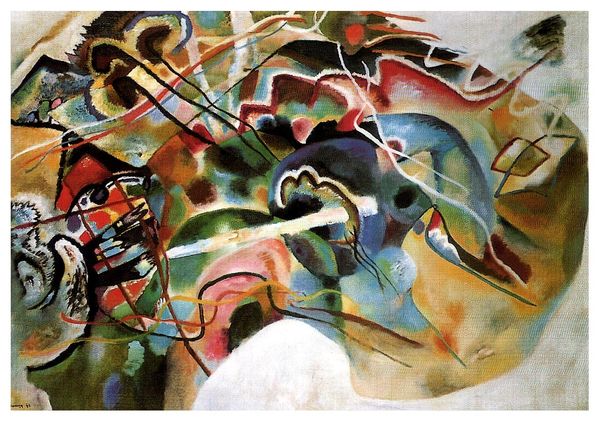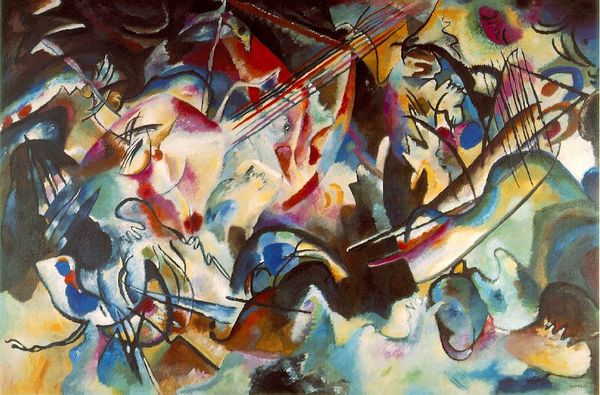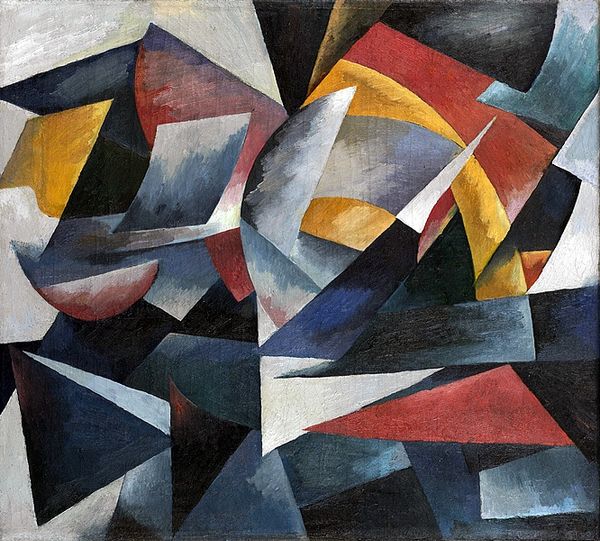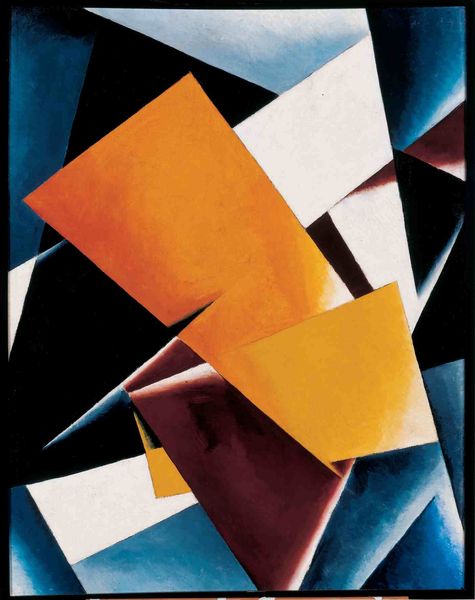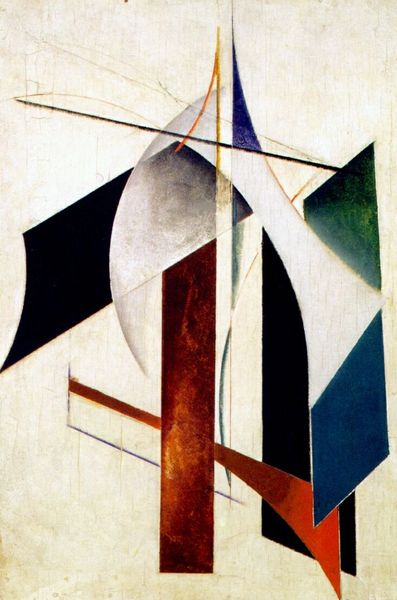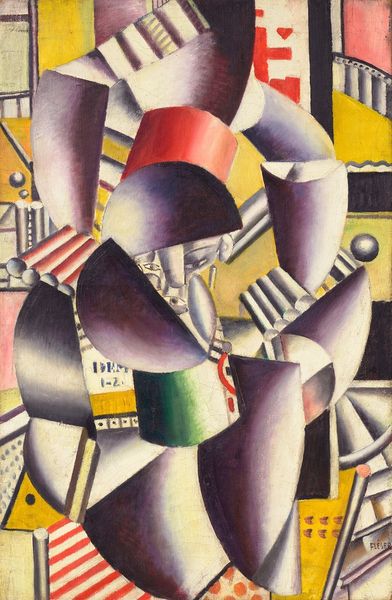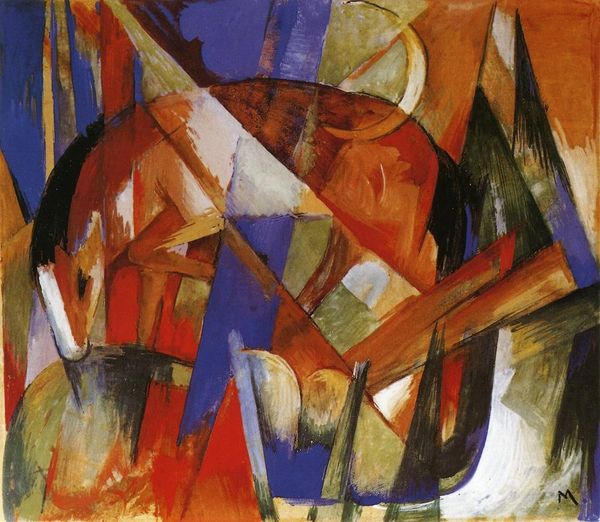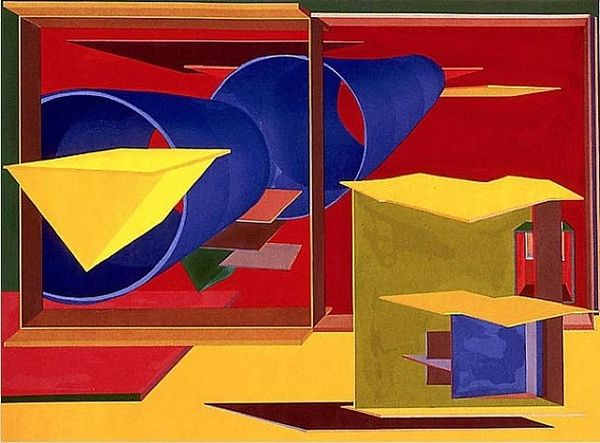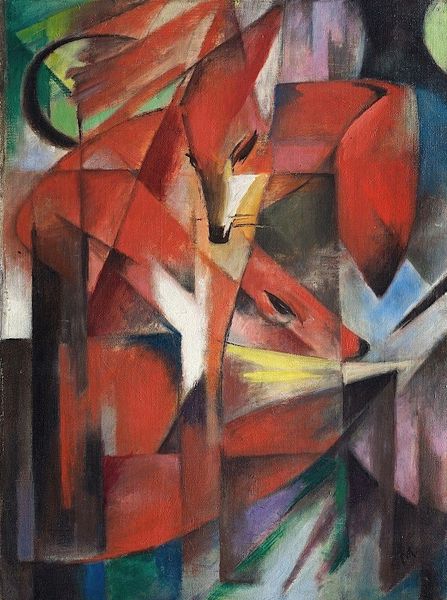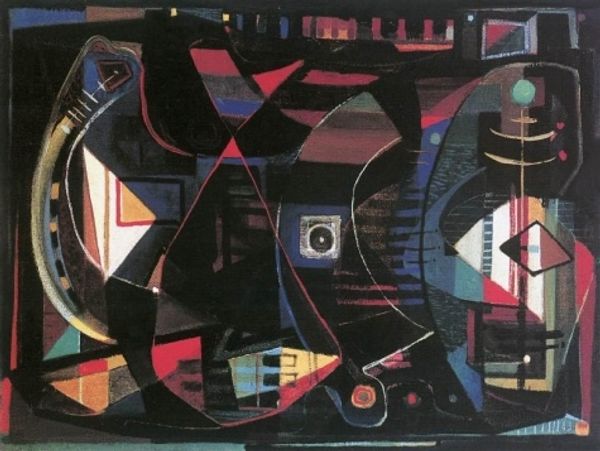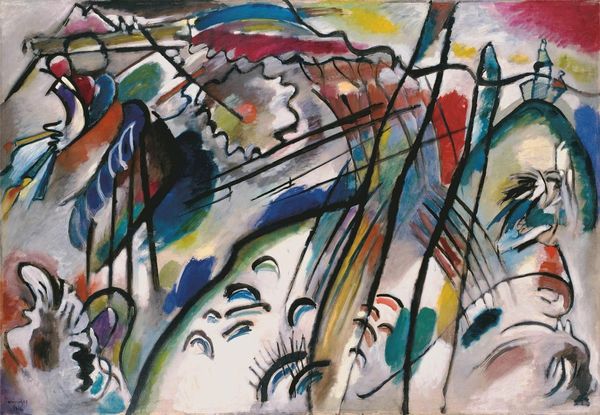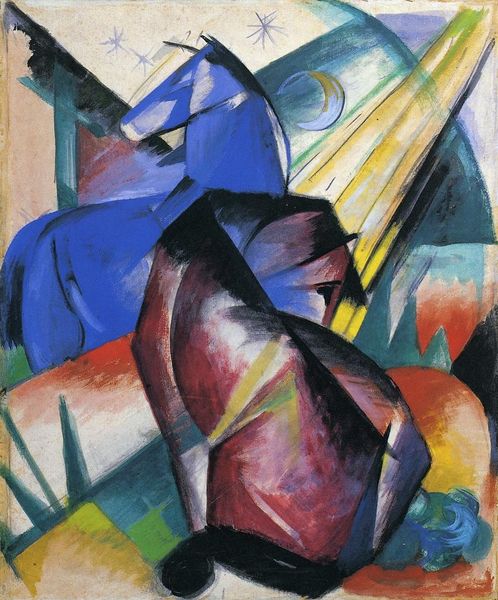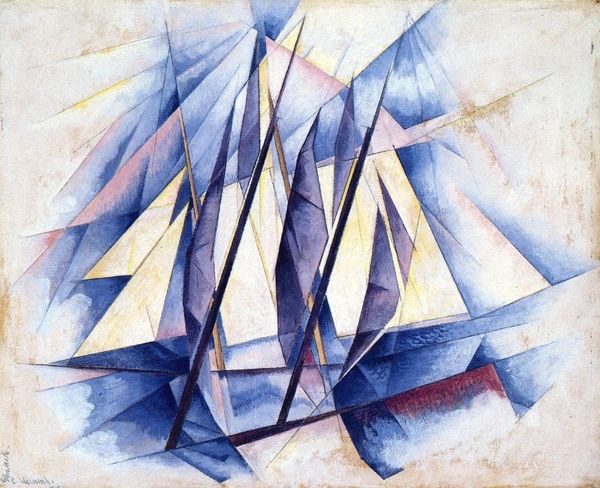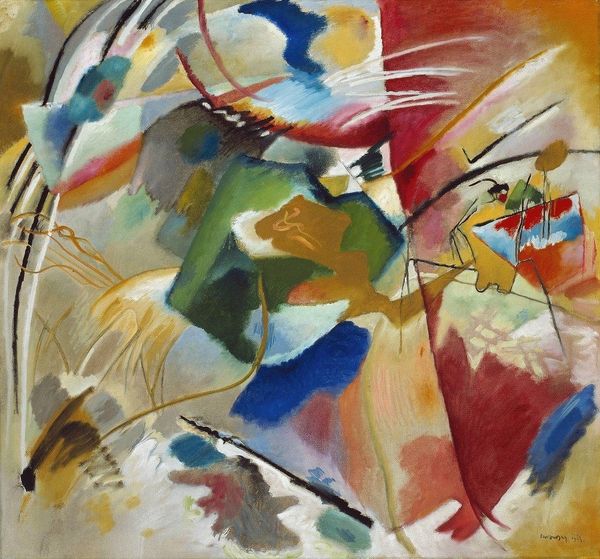
painting, oil-paint
#
abstract painting
#
painting
#
oil-paint
#
landscape
#
geometric
#
abstraction
#
line
#
painting art
#
futurism
Copyright: Public domain US
Editor: This is "Landscape" by Giacomo Balla, painted in 1913 using oil paints. I’m struck by the fragmented forms and vibrant colors. It’s so different from traditional landscapes. What do you see in this piece, and how does it fit into its historical context? Curator: Looking at "Landscape" through a materialist lens, I'm immediately drawn to the process of its creation and its societal underpinnings. The fragmented forms you noticed aren't just stylistic choices; they represent a breakdown of traditional artistic labor. Balla is using paint, a readily available industrial product, to dismantle established notions of 'landscape' and its romanticized relationship with nature. Editor: So, the use of oil paint itself is significant? How does it move beyond simply being a medium? Curator: Precisely. Oil paint, manufactured and distributed through burgeoning industrial networks, democratized artmaking, pushing back against exclusive artistic practices controlled by academies and wealthy patrons. This "Landscape" isn’t about celebrating nature’s beauty; it's about interrogating the means by which we understand and represent our environment, influenced by mass production. How does the futurist element shape our viewing of this piece through mass production and consumption? Editor: I hadn't considered it that way! The industrial angle makes so much sense, considering Futurism’s obsession with technology. So it's not just about depicting a scene, but about critiquing the system that allows us to depict it in the first place? Curator: Exactly. Balla is showing how materials shape our experience and artistic interpretation, reflecting the labor that makes both art and industry possible, shifting away from individual "genius." We gain a lot of insight from its creation. Editor: This changes everything for me. I was focused on the aesthetic impact, but now I see it as a commentary on the art world's changing relationship to production and industry. Curator: Right? And by questioning art's raw materials, its role, and production methods, the painting opens conversations beyond purely aesthetic pleasure.
Comments
No comments
Be the first to comment and join the conversation on the ultimate creative platform.
